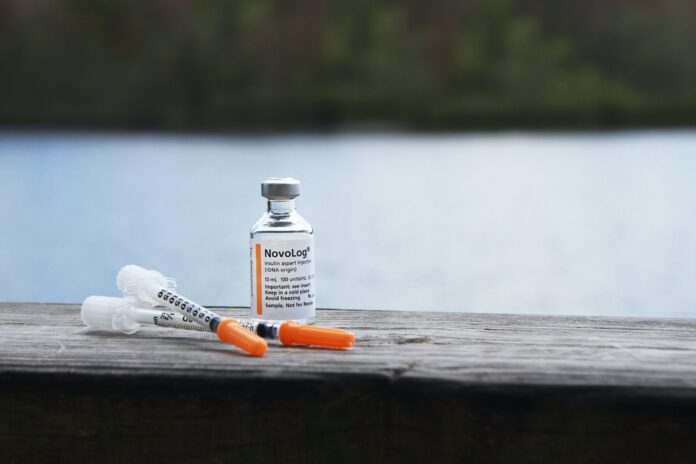Addressing life-threatening illnesses
According to the latest statistics of the World Health Organization, about 422 million people have diabetes worldwide, and about 1.6 million deaths are directly caused by diabetes. Type 1 diabetes is an autoimmune disease that destroys insulin-producing cells and drastically raises blood glucose levels, in some cases to levels that are life-threatening. This type of diabetes, once called juvenile diabetes, makes people dependent on insulin, which is essential for them to stay alive. What is even more terrifying is the fact that a small number of people are unable to control their insulin levels despite having access to insulin pumps. The prevalence and complications of diabetes make this illness a serious condition that science is trying to address. In such cases, when insulin control itself does not prove to be enough, patients receive beta-cell transplants from donors and take immunosuppressive drugs in order to help their bodies tolerate the transplanted cells. This, however, is nowhere near a one-size-fits-all, miraculous solution, as each individual’s body may react differently to the transplanted cells.
Biotech companies aiming at treatment options
Currently, there are more than 70 leading biotech enterprises focusing on type 1 diabetes. Some are focusing on AI solutions for insulin monitoring, while others are trying to find a solution for the processes of the body related to the previously mentioned immune reaction. Biotech companies in the latter category are trying to pursue two strategies: the first is microencapsulation, and the other is macroencapsulation, using an implantable device.
Investments for biotech companies are on the rise
What is great news, however, is that investments are also flooding into the industry of digital health. Funding into the industry only in 2020 has reached $9.9 billion, with the highest quarterly funding in Q3 at $4.6 billion.
Why are these trends important for diabetes treatment?

While digital health is blooming, research on diabetes in recent years has taken a turn to alternative approaches. In 2014, a research group at Harvard University reported using insulin-producing cells derived from human embryonic stem cells and induced pluripotent stem cells to lower blood glucose levels in mice. As a result, biotech startups are now trying to develop either beta cells, pancreatic cells, or materials that can successfully encapsulate such cells. And here is where Encellin’s story starts.
Encellin, a San Francisco-based biotech company, is among the top startups that are trying to develop novel biomaterials to encapsulate transplanted beta cells in order to prevent the body’s damaging immune response to it; hence, their solution would, in theory, eliminate the need for immunosuppressant drugs.
Encellin with ambitious aims and a promising solution
Encellin, founded by Crystal Nyitray and Grace Wei in 2016, is aiming at perfecting the treatment of type 1 diabetes by replenishing beta cells. The team is working on a solution to eliminate the need for the previously mentioned immunosuppressant drugs which are necessary for these transplanted beta cells to survive during the traditional treatment. The reason for this is straightforward: these drugs pose health risks and cause side effects. The body protects itself from foreign intruders by autoimmune rejection, and this has long been a concern for companies working on perfecting the existing treatments. Encellin’s development and other cell encapsulation techniques aim to protect these cells and, as a result, would prevent the physical contact between the immune cells of the body that are destroying intruders and the transplanted cells.
The field of regenerative medicine is getting closer and closer to finding solutions for life-threatening illnesses. Cell-replacement therapy has already been a breakthrough in the treatment of type 1 diabetes, but it is still not a complete solution. However, thanks to the valuable research that led to these new solutions and biotech startups addressing the issue, soon there will be an organic solution to encapsulate healthy pancreatic islet cells.

Encellin’s nanoporous layers to prevent fibrosis
Encellin has a novel approach, even within the leading biotech startups addressing the issue. The company has developed an ultrathin nanoporous membrane, which not only reduces the chances of immune reaction but also harmful fibrosis. Encellin’s device encapsulates these glucose-sensitive, insulin-producing cells in a kind of sack. They, then, are implanted just under the skin and chemically communicate. What is more, animal studies have shown high biocompatibility, meaning reduced risk of fibrosis. It sounds like part of a sci-fi novel, but developments, such as Encellin’s, are on the way and are in different stages of development and testing already.
Encellin’s islet implant system uses a device made of bio-readsorbable material, meaning that it can be used either to provide long-term protection of the immune system or until immune tolerance sets in. The device encapsulates the islet cells in a flexible membrane that consists of two nanoporous layers. This porous layer has the capacity to allow donor cells to detect glucose levels and secret insulin but does not allow immune cells to attack the encapsulated cell, theoretically protecting against immune rejection. The device itself is as thick as a human hair, has a circular shape, and is minimally invasive.
The company is currently fundraising to start human safety studies in which the safety of the implantation of these devices and the human body’s response could be determined. After the safety study, there is a process of trials with the hope of efficient use in medical practice.
Length of effectiveness
The traditional treatment via transplanted cells and immunosuppressive drugs is effective generally for about one or two years, and in some cases, up to seven or even ten years. Encellin’s aim is to provide a solution by one treatment for about the same timeframe.
Encellin’s emerging recognition
Encellin was the winner of the 2017 HealthTech Showcase, which is the American Diabetes Association’s fundraising event organized by the Leaders Forum. The forum was set up in 1995 by three medical technology executives to address the societal impact of diabetes. The current showcase format was adopted in 2014, giving opportunities for startup companies to interact with the business sphere and earn precious funding. It brings together Silicon Valley biotech companies, venture capitalists, and investment banks who evaluate promising ideas of the medical sector of the tech industry. In 2017, by being the winner of the HealthTech Showcase with the novel idea of the membrane-based, islet implant device, Encellin won not only $10.000 but prestige and recognition. The company has also earned recognition via the 2016 Rosenmann Institute Innovation Award and 2017 Medtech Innovators title for top Northern California startup.
Encellin has a small staff mainly of scientists and has a scientific advisory board of scientists, university professors, and researchers. Their approach is more scientific and technical than commercial since Encellin truly focuses on offering the right therapeutic solution for patients, limiting unnecessary risks. If Encellin’s technology proceeds and is tested on humans proving to be safe, the treatment will have an enormous impact on the treatment of other chronic diseases. And to be honest, we are living in the era of these solutions. Let us hope that these islets packaged in ultra-thin devices will pave the way for a future cure of type 1 diabetes and other chronic illnesses.



